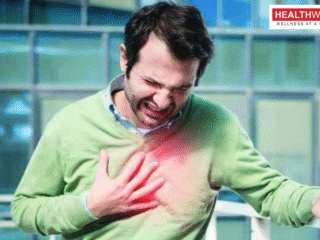Vitamin B12 deficiency is not just about feeling tired; it can cause unimaginable harm to your body. Though commonly associated with fatigue and weakness, this deficiency can lead to various unusual and unexpected symptoms that often go unnoticed. Adults ideally need 2.4 mcg of vitamin B12 daily, crucial for nerve function, red blood cell production, and DNA synthesis. Recognizing and addressing B12 deficiency promptly is essential due to its subtle and diverse symptoms.
1. Pins and Needles Sensation:
One unusual sign of Vitamin B12 deficiency is the pins and needles sensation, also known as paresthesia. This tingling or prickling occurs in the hands, feet, legs, or even the face, indicating nerve damage from the deficiency affecting peripheral nerves responsible for sensation.
2. Hair and Nail Changes:
Changes in hair and nail health, like hair loss, brittle nails, and alterations in texture or color, can be signs of Vitamin B12 deficiency. B12 is vital for cell division and renewal, including cells responsible for hair and nail growth. Insufficient B12 disrupts these processes, leading to noticeable changes in hair and nail quality.
3. Depression and Mood Changes:
Mental health issues such as depression, anxiety, and mood swings can be linked to Vitamin B12 deficiency. B12 plays a crucial role in synthesizing neurotransmitters like serotonin and dopamine, regulating mood and emotions. Insufficient B12 levels may disrupt this process, causing mood disturbances and psychological symptoms.
4. Muscle Weakness and Difficulty Walking:
Vitamin B12 deficiency affects muscle strength and coordination, resulting in weakness, stiffness, or difficulty walking. Nerve damage and reduced red blood cell production compromise oxygen delivery to muscles, impacting their function and causing weakness and fatigue.
5. Memory Problems and Cognitive Decline:
Memory lapses and cognitive decline, often associated with aging, can also indicate Vitamin B12 deficiency. Inadequate B12 levels may impair cognitive function, contributing to memory problems, confusion, and difficulty concentrating. These symptoms can progress over time if the deficiency remains unaddressed.
6. Heart Palpitations and Shortness of Breath:
Cardiovascular symptoms like heart palpitations and shortness of breath may occur in severe Vitamin B12 deficiency. The lack of B12 impairs the production of healthy red blood cells, leading to anemia and inadequate oxygen transport to tissues, manifesting as palpitations and breathing difficulties.
7. Glossitis and Mouth Ulcers:
Oral manifestations such as glossitis (inflammation of the tongue) and mouth ulcers can indicate Vitamin B12 deficiency. These symptoms arise due to changes in the mouth’s epithelial tissues caused by inadequate B12 levels, leading to discomfort, pain, and difficulty eating or swallowing.
8. Vision Changes:
Vitamin B12 deficiency can impact vision in various ways, including blurred or disturbed vision, light sensitivity, and even optic nerve damage in severe cases. The optic nerve, essential for transmitting visual information to the brain, can be compromised due to B12 deficiency-induced nerve damage, resulting in reversible visual disturbances with appropriate treatment.
Vitamin B12 deficiency is more than just feeling tired; it can wreak havoc on your body. Recognizing the lesser-known signs, such as tingling sensations, hair and nail changes, mood disturbances, muscle weakness, memory problems, cardiovascular symptoms, oral issues, and vision changes, is crucial for prompt diagnosis and treatment. Ensuring an adequate intake of B12 through diet or supplements is vital for maintaining overall health and preventing the unimaginable damage that B12 deficiency can cause.







